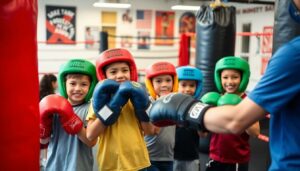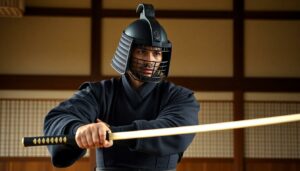Table of Contents
ToggleWhen it comes to martial arts, Israel might not be the first place that pops into your mind. But hold onto your gi! This vibrant nation is home to some of the most effective and dynamic martial arts styles in the world. From Krav Maga, the self-defense system that’s so effective it’s practically a superhero’s toolkit, to other unique forms that blend tradition with modern techniques, Israel’s martial arts scene packs a punch.
Overview of Israel Martial Arts
Israel’s martial arts landscape showcases a blend of various styles and disciplines. Krav Maga stands out as the most recognized martial art, originating from the Israeli military. Designed for real-life situations, it prioritizes practical techniques that enable individuals to defend themselves effectively.
Various other martial arts exist within Israel, each with unique features. Wing Chun, for instance, offers practitioners a focus on close-range combat and quick strikes. Brazilian Jiu-Jitsu emphasizes ground fighting and submission techniques, appealing to those interested in grappling.
Another notable form is the Israeli combat system known as KAPAP, or “Krav Panim el Panim.” It integrates elements from multiple martial arts while maintaining a focus on self-defense. Students can experience a comprehensive training method through KAPAP.
Martial arts schools in Israel frequently foster a sense of community and discipline among students. Practitioners share a camaraderie that enhances not only their skills but also their personal growth. These schools often host seminars and workshops, promoting interaction among diverse martial art communities.
Dedicated athletes in Israel actively participate in competitions, showcasing their talents nationally and internationally. These events often highlight the effectiveness of each discipline while encouraging healthy competition and sportsmanship.
Moreover, martial arts serve as a tool for personal development. Through consistent training, individuals can cultivate increased confidence and resilience, equipping them for challenges beyond the dojo. The dynamic nature of Israel’s martial arts scene continues to evolve, presenting new opportunities for practitioners at all levels.
History and Evolution
Israel’s martial arts history draws from a variety of cultural and historical influences. These influences shape the unique styles found within this vibrant scene.
Early Influences
Ancient combat techniques influenced early martial practices in the region. Historically, the landscape of Israel included the need for self-defense among various tribes and communities. Techniques derived from wrestling, boxing, and grappling formed a foundation for the development of modern martial arts. Interaction with surrounding cultures introduced additional styles, enriching Israel’s martial arts tapestry. These early influences set the stage for evolving practices that blend traditional values with contemporary needs.
Development of Modern Styles
The 20th century marked a significant shift in the evolution of martial arts in Israel. Military training introduced Krav Maga, a system prioritizing efficiency and real-world application. This approach emphasized self-defense for everyone, regardless of size or strength. Growth in popularity of other styles occurred alongside Krav Maga, including Brazilian Jiu-Jitsu and Muay Thai. Each style contributed unique techniques, fostering cross-discipline training opportunities. Today, modern Israeli martial arts reflect a culmination of historical traditions and recent innovations, catering to diverse practitioners.
Popular Martial Arts Styles in Israel
Israel boasts a range of popular martial arts styles that cater to diverse needs and skills. Each style offers unique techniques and philosophies, contributing to a vibrant martial arts culture.
Krav Maga
Krav Maga stands out prominently as Israel’s most famous martial art. Designed for military use, it emphasizes real-world self-defense scenarios. Practitioners learn to respond swiftly to threats using practical techniques rooted in natural movements. The method’s effectiveness stems from its focus on neutralizing opponents quickly. Training includes both armed and unarmed confrontations, promoting adaptability and resilience. Many civilians adopt Krav Maga for personal safety, further solidifying its status in Israeli society.
Kapap
KAPAP focuses on self-defense, integrating techniques from various martial arts to create a holistic system. This style prioritizes close combat, movement, and situational awareness. Its name, “Krav Panim el Panim,” reflects the emphasis on face-to-face encounters. Techniques include strikes, grappling, and weapon defenses, catering to various situations. KAPAP adapts training to address modern threats, ensuring relevance in today’s world. Its instructional approach fosters a supportive environment for practitioners of all skill levels.
Traditional Wrestling
Traditional wrestling in Israel draws from ancient combat practices, showcasing physical strength and strategic skill. This style incorporates techniques rooted in the region’s cultural heritage. Practitioners engage in various forms, each with distinct rules and objectives. Training develops essential attributes like agility, balance, and problem-solving. Wrestlers participate in competitive events, reflecting a strong community spirit among participants. This martial art contributes to both physical fitness and cultural identity, enhancing its appeal in Israel.
Benefits of Practicing Israel Martial Arts
Practicing Israel martial arts provides numerous advantages. Physical fitness improves significantly through various training techniques, enhancing strength, flexibility, and cardiovascular health. Mental resilience develops as practitioners face challenges, fostering discipline and focus essential in daily life.
Self-defense skills gained from styles like Krav Maga enable individuals to protect themselves in real-life situations. Social connections form within martial arts schools, creating a supportive community that encourages personal growth and friendships. Stress relief serves as another key benefit, allowing practitioners to manage anxiety and enhance overall well-being.
Improved self-confidence emerges from mastering techniques and achieving personal goals. Emotional regulation benefits as participants learn to manage frustration and fear during training sessions. Continuous learning plays a vital role in cultivating adaptability, equipping practitioners to handle various scenarios effectively.
KAPAP emphasizes a holistic approach, exposing individuals to different martial arts techniques that enhance self-defense capabilities. Brazilian Jiu-Jitsu provides a strong foundation in ground fighting, offering unique strategies that boost overall combat skills. Each martial art contributes distinct benefits tailored to practitioners’ needs and preferences.
Competitions held throughout Israel encourage healthy rivalry and showcase skills, pushing athletes to excel and grow. Engaging in these events also strengthens teamwork and sportsmanship, highlighting the value of collaboration in martial arts. Personal development extends beyond physical training, encompassing emotional and social growth.
Israel’s martial arts scene continuously evolves to incorporate modern techniques and philosophies, ensuring ongoing opportunities for practitioners. Embracing traditions while adapting to contemporary challenges allows martial artists to enhance their skills and experiences effectively.
Training and Techniques
Training in Israeli martial arts involves a combination of various techniques aimed at real-world applications. Practitioners often focus on self-defense scenarios that emphasize situational awareness. The practice of Krav Maga includes striking, grappling, and defense against armed attackers, ensuring preparedness for diverse encounters.
Fundamental Techniques
Fundamental techniques serve as the foundation of Israeli martial arts. Striking techniques, such as punches and kicks, focus on power and precision. Grappling techniques emphasize balance and leverage, allowing practitioners to subdue opponents effectively. Self-defense maneuvers address common attacks, equipping students with strategies to escape dangerous situations. Each technique reflects the practical nature of training and the necessity for adaptability and speed.
Training Regimens
Training regimens vary across martial arts schools in Israel to cater to different skill levels. Classes typically combine physical conditioning with technique drills, allowing for comprehensive development. Stress is placed on sparring sessions, which simulate real combat scenarios, enhancing reflexes and decision-making under pressure. Additionally, practitioners engage in partner exercises to refine their skills in a supportive environment. Regular participation in seminars and competitions contributes to skill advancement and community building.
Israel’s martial arts scene is a vibrant tapestry of diverse styles that cater to various needs and preferences. With Krav Maga at the forefront, practitioners benefit from a system designed for real-world applications and self-defense. The integration of other martial arts like KAPAP and Brazilian Jiu-Jitsu further enriches the training landscape, ensuring a comprehensive approach to personal development.
As martial arts continue to evolve in Israel, they foster community spirit and resilience among practitioners. The commitment to improving physical fitness and mental strength makes these disciplines not just about fighting but about building character and confidence. Whether one is a beginner or an experienced fighter, Israel’s martial arts offer a unique and rewarding journey.




